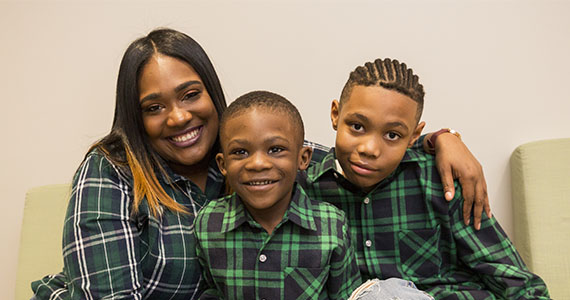Taking Autism Interventions Home
 Photo credit: Jonathan Kolbe
Photo credit: Jonathan Kolbe
July 10, 2019
Three years ago, the A.J. Drexel Autism Institute Clinical Core partnered with Elwyn, one of the oldest providers of educational and behavioral services for children with special needs, to follow up with children who had autism concerns in general psychological evaluations. The Autism Institute doesn’t directly enroll children for immediate evaluation – clinicians at the Autism Institute see children who are already enrolled in Elwyn’s early intervention services. Drexel clinicians see children as soon as two weeks after their referral for autism diagnostic assessment – almost unheard of in the world of autism diagnoses where wait times can drag on for six months to a year or more.
Clinicians started off seeing two families a week. Now, they see six to eight families, using the gold standard in autism diagnostics while limiting wait time to under a month in ideal situations. Clinicians provide more than just a diagnosis - the service partnership with Elwyn has also created opportunities for research. For example, clinicians listened to parents’ immediate needs, and the question that parents of children diagnosed with autism most often asked was, “What can I do when I go home today?” Parents like Shayna Martin, pictured above with her children, wanted to help their children with communication, and that’s where the Functional Communication Study was born. This study is the first of its kind to use video modeling and in-vivo feedback to determine if video modeling alone can help parents effectively implement autism interventions in their children.
As part of the study, parents come in weekly for twelve weeks and engage in an evidence-based protocol called Functional Communication Training that has been adapted specifically for parents. Parents learned to observe behaviors in order to help their children express their wants or needs with language, rather than other forms of communication such as tantrums. Parents also receive videos that go along with their weekly lessons. Video trainings and guidance by clinicians empower parents to implement interventions at home.
“The Functional Communication Study was an amazing experience,” says Shayna Martin, a parent participant in the Functional Communication Study. “I met some really genuine people who cared about children and their development. The study gave me tools on how to work with my child and teach him how to talk to me when he wanted something. The most helpful thing I learned was patience.”
Media Contact